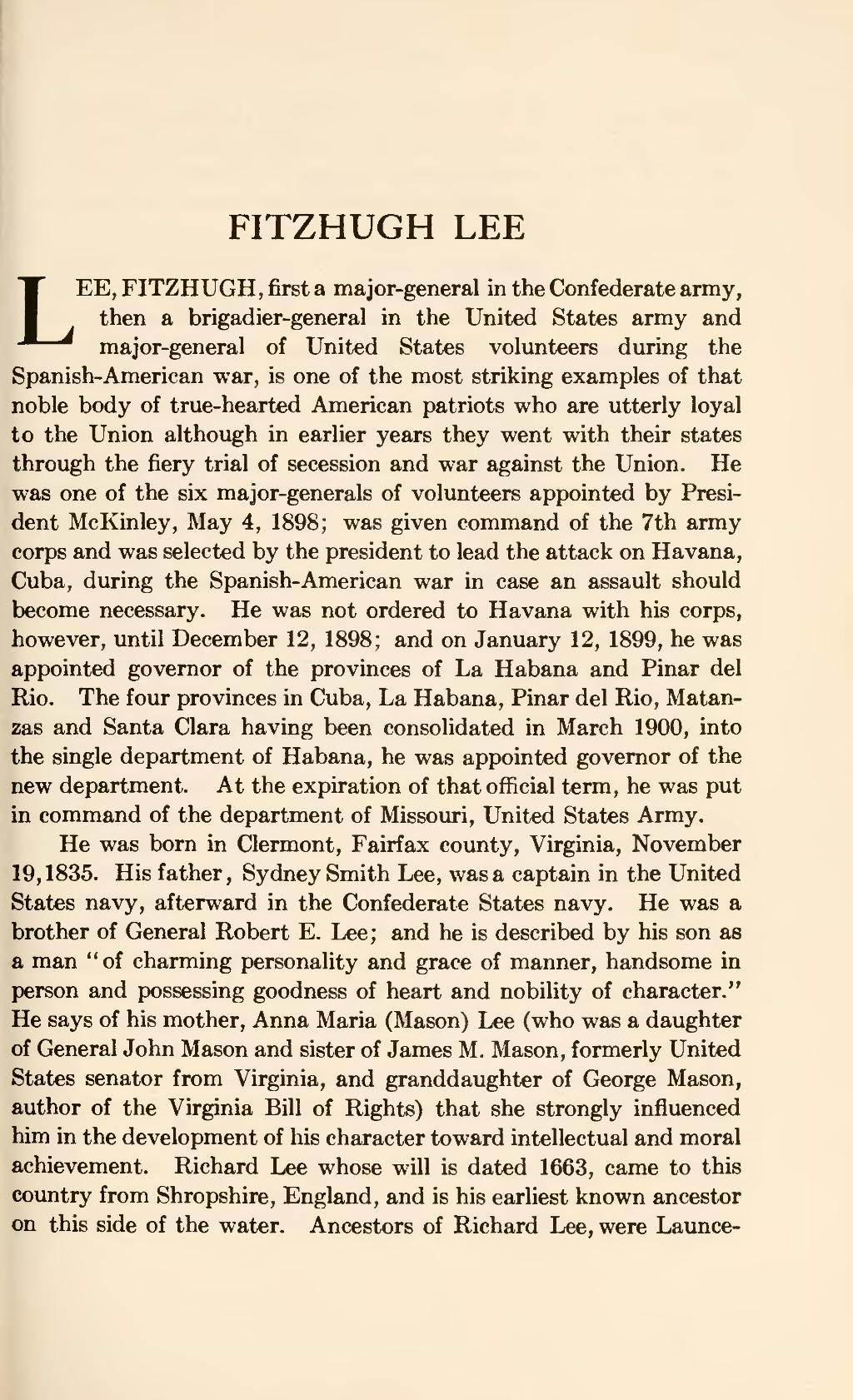FITZHUGH LEE
LEE, FITZHUGH, first a major-general in the Confederate army, then a brigadier-general in the United States army and major-general of United States volunteers during the Spanish- American war, is one of the most striking examples of that noble body of true-hearted American patriots who are utterly loyal to the Union although in earlier years they went with their states through the fiery trial of secession and war against the Union. He was one of the six major-generals of volunteers appointed by President McKinley, May 4, 1898; was given command of the 7th army corps and was selected by the president to lead the attack on Havana, Cuba, during the Spanish-American war in case an assault should become necessary. He was not ordered to Havana with his corps, however, until December 12, 1898; and on January 12, 1899, he was appointed governor of the provinces of La Habana and Pinar del Rio. The four provinces in Cuba, La Habana, Pinar del Rio, Matanzas and Santa Clara having been consolidated in March 1900, into the single department of Habana, he was appointed governor of the new department. At the expiration of that official term, he was put in command of the department of Missouri, United States Army.
He was born in Clermont, Fairfax county, Virginia, November 19, 1835. His father, Sydney Smith Lee, was a captain in the United States navy, afterward in the Confederate States navy. He was a brother of General Robert E. Lee; and he is described by his son as a man "of charming personality and grace of manner, handsome in person and possessing goodness of heart and nobility of character." He says of his mother, Anna Maria (Mason) Lee (who was a daughter of General John Mason and sister of James M. Mason, formerly United States senator from Virginia, and granddaughter of George Mason, author of the Virginia Bill of Rights) that she strongly influenced him in the development of his character toward intellectual and moral achievement. Richard Lee whose will is dated 1663, came to this country from Shropshire, England, and is his earliest known ancestor on this side of the water. Ancestors of Richard Lee, were Launce-
